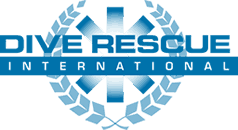Med Dive, Public Safety Scuba Instructor, and Dive Rescue 1 Trainer will be offered April 22 – May 3, 2024 in Indianapolis, IN! Register NOW!
Med Dive:
Med Dive is Dive Rescue International’s renowned 16-hour training program for certified divers, surface support personnel, EMS professionals, and other medical professionals involved with dive teams.
Students learn how to recognize and treat hyperbaric injuries. More importantly, graduates of this program will learn how to prevent injuries and safeguard their teammates. This program includes numerous hands-on practical sessions. Successful completion of this program is measured in class participation and an end of program comprehensive test.
Key training topics include:
- GAS LAWS AND THEIR EFFECT ON DIVERS
- DIVE RELATED ANATOMY PHYSIOLOGY
- FITNESS TO DIVE
- HUMAN FACTORS IN DIVE RELATED ACCIDENTS AND ILLNESSES
- NEUROLOGICAL INJURIES
- PULMONARY OVERINFLATION SYNDROME AND ARTERIAL GAS EMBOLI
- DECOMPRESSION ILLNESS
- SPECIAL PROBLEMS
- NON-PULMONARY BAROTRAUMAS
- INERT GAS DISORDERS
- RESCUE AND RESUSCITATION OF THE DIVER
- OXYGEN THERAPY
PREREQUISITES
All students must be a member of a public safety agency, at least 18 years of age, and have current First Aid and CPR training.
Public Safety Scuba Instructor:
The goal of the Public Safety Scuba Instructor (PSSI) program is to train and certify qualified candidates to train non-divers as Public Safety Divers (PSD). The Public Safety Diver (PSD) certification is the equivalent to an open water certification. As a PSSI, the instructor will be prepared to present a comprehensive course of study to members of public safety agencies aspiring to become PSDs. As a PSSI, the instructor will not only train new PSDs, but can upgrade their team’s level of training by cross-training certified open water divers to the PSD level. PSSIs utilize a comprehensive educational system of teaching material including: a dedicated PSD student text and workbook, a thorough PSSI manual (with outlines, narratives, and handouts), and a comprehensive open water training system. The PSSI and PSD certification is recognized by and meets or exceeds all instructional requirements of the RSTC (Recreational Scuba Training Council).
The PSSI program is presented and managed through a cooperative effort between the instructor’s department and Dive Rescue International. By incorporating your own PSSIs into your department, you can contribute a substantial cost-effective and proven training program to your department.
Key training topics and the associated objectives include:
- DIVING KNOWLEDGE, SKILLS, AND TECHNIQUES
- CLASSROOM PARTICIPATION
- TEACHING TECHNIQUES AND LECTURE SKILLS
- POOL AND OPEN WATER SKILLS
BE SURE TO BRING
Candidates must provide: US Coast Guard approved PFD with knife and whistle, and adequate clothing and protection from the environment. Bring a pen and paper for note-taking and sketching as well as a three ring binder to organize your Trainer Manual. Students must provide their own scuba equipment: Wet Suit or Dry Suit with gloves and booties, Scuba regulator: recently serviced and environmentally protected with alternate air source (i.e.: octopus, Air II, etc.), timing device, depth and submersible pressure gauges, BC with oral/power inflator, two tanks with current Hydro & VIP, mask, snorkel, fins, weight belt, and two cutting tools (knife, wire cutters, or trauma shears). Students must also bring a towel, swim suit, and goggles in addition to a dive mask. This course is taught using conventional (recreational / sport) scuba dive equipment.
*All students will be required to wear business attire including coat and tie during classroom sessions.
PREREQUISITES
Member of public safety agency, at least 21 years old, open water scuba certification with a minimum of 100 logged dives (at least 50 of the dives must be public safety training or operational dives), current First Aid and CPR training, all trainer courses require a physician signed medical statement, successful completion of Dive Rescue 1 and Med Dive. This program is designed for personnel who are physically fit. Participants are encouraged to participate after successfully completing the IADRS Watermanship Test or testing to a fitness level of 16 MET (Metabolic Equivalents) or greater. Participants with aerobic fitness questions or concerns should consult their physician prior to in-water training
Dive Rescue 1 Trainer:
The goal of the Dive Rescue 1 Trainer program is to train and certify individuals to effectively teach department personnel to respond to accident scenes; react to surface and subsurface accidents in a rescue or recovery mode; and prepare surface support personnel to compliment the efforts of the divers. Dive Rescue 1 Trainers not only need to be proficient in the subjects listed below, they also need to successfully complete the following: a final exam, delivery of a lecture on an assigned topic, and demonstrate proficiency in pool and open water diving skills.
Key training topics include:
- DROWNING AND PSD FATALITIES
- TEAM ORGANIZATION AND MANAGEMENT
- SCENE EVALUATION
- SERVICE TO THE FAMILY, MEDIA, AND OTHER AGENCIES
- SEARCH PATTERNS
- VICTIM RETRIEVAL
- VEHICLE-IN-WATER ACCIDENTS
BE SURE TO BRING
Be Sure to Bring (for trainer classes): US Coast Guard approved PFD with knife and whistle, adequate clothing and protection from the environment, and pen and paper for note-taking and sketching. Diving students must provide their own equipment: Scuba regulator: recently serviced and environmentally protected with alternate air source (i.e.: octopus, Air II, etc.), timing device, depth and submersible pressure gauges, BC with oral/power inflator, two tanks with current Hydro & VIP, mask, snorkel, fins, weight belt and two cutting tools (knife, wire cutters, or trauma shears).
*All students will be required to wear professional attire during classroom sessions.
